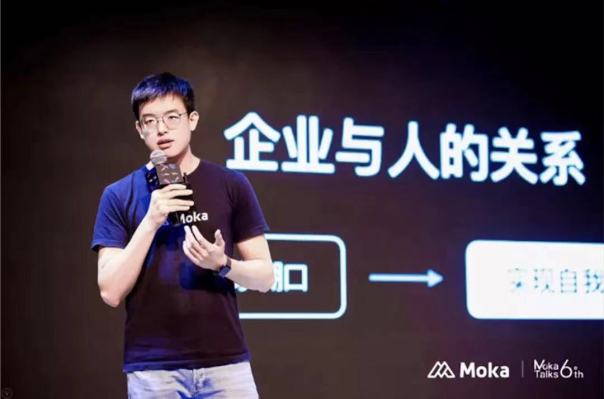Moka, a six-year-old Chinese startup that wants to make human resources management easier with software, said today it has closed a $100 million Series C round.
The startup aims to automate all stages of talent management, from hiring to retaining existing staff. For example, its software can automatically collect post-interview feedback from candidates and store that information in a database. It can also alert employers when staff make changes to their resumes, which signifies they may be mulling new opportunities.
Moka’s latest investment was led by Tiger Global with participation from Blue Lake Capital, GL Ventures — the early-stage arm of the storied Hillhouse Capital, GSR Ventures and GGV Capital.
The new round came just over a year after the company earmarked $43 million in a Series B round. Moka said it has reached the “unicorn” status but declined to disclose its exact valuation. Its streak of fundraising success no doubt reflects rising investor interest in startups that help boost enterprise productivity, as data-intensive, consumer-oriented internet services like e-commerce and ride-hailing face enhanced regulatory restrictions.
Moka said it has accumulated over 1,500 paid clients including Tencent, Xiaomi, McDonald’s and Arm China, with an annual retention rate of over 110%. Its CEO Li Guoxing, a Stanford grad, claimed in a previous speech that Moka’s products are particularly popular amongst Chinese internet firms.
For years, China’s SaaS entrepreneurs had a harder time attracting investors because the industry didn’t yield the same kind of explosive growth as consumer-facing products like games and social networks. Even Moka’s own investor Blue Lake Capital had doubts about the prospects of ATS, or applicant tracking systems, at the beginning.
“ATS found a place in the United States partly thanks to regulatory forces. For example, the law requires job seekers’ privacy to be protected, so no information from their job hunting or interviews can be passed around via employers’ company emails. There has to be a separate system to transmit that information, which drove the demand for ATS.” reckons Ray Hu, founding partner of Blue Lake Capital.
“At the time, we didn’t think China would have the same strict regulatory measures anytime soon, so the demand for ATS wouldn’t be as strong,” the investor said, referring to the time when he met Moka around 2015.
But he soon found that, unlike the North American market, the urgency of Chinese companies to improve recruitment efficiency and the sharing and maintenance of talent resources continued to rise, “making Moka’s growth curve very steep.” Blue Lake Capital got in on Moka’s Series B round.
It turned out that HRs in China are not only receptive to ATS but also willing to pay for it. Moka’s average paying customer shells out 100,000-200,000 yuan a year for its software, a level that’s a fraction of what its American counterparts make but is on par with the income of other SaaS categories in China, like purchase management, after-sales and legal services, Hu observes.
Updated with investor comments.
